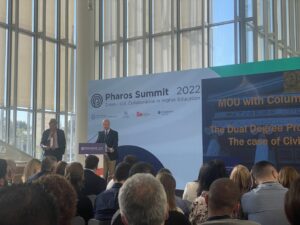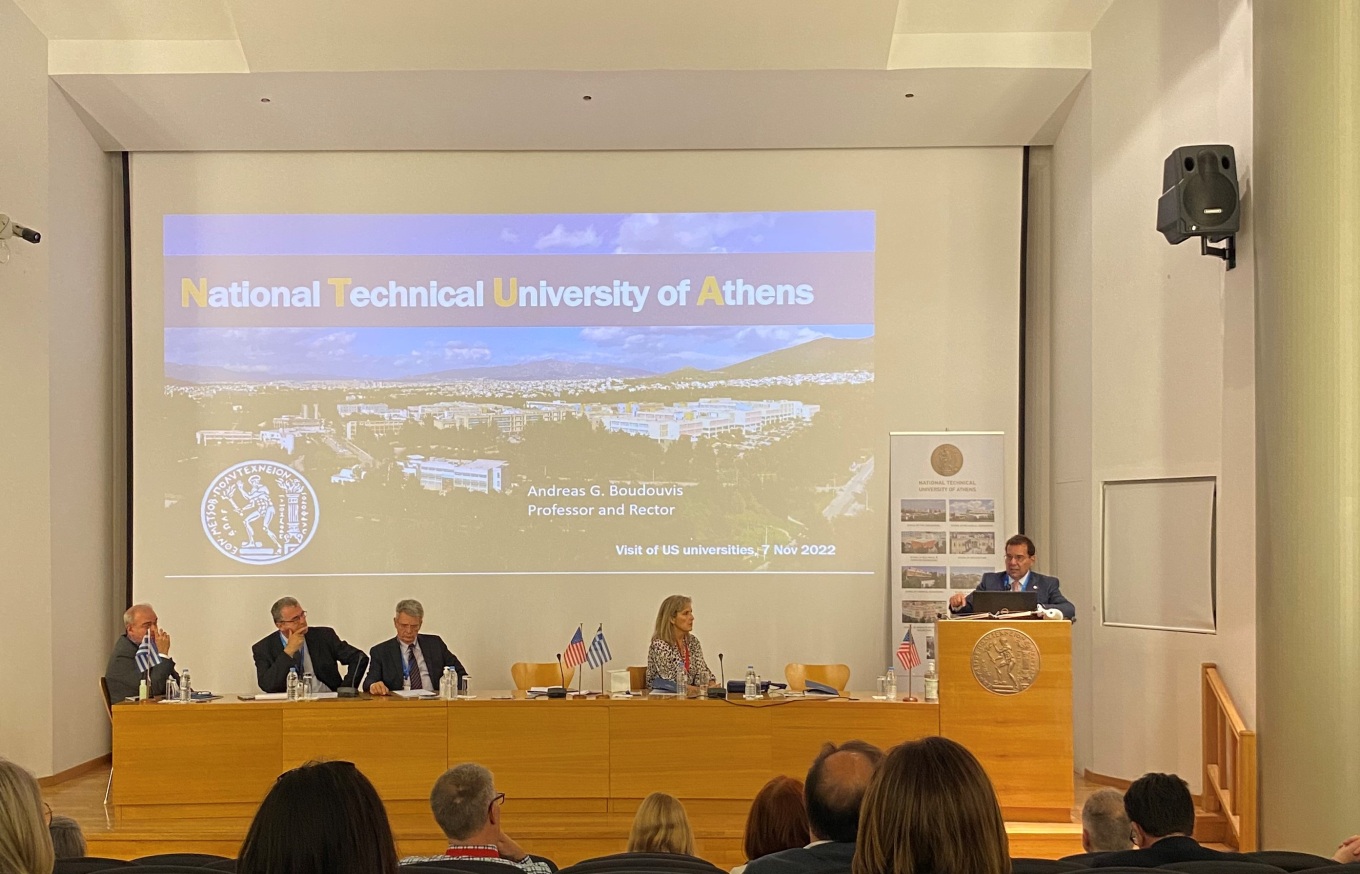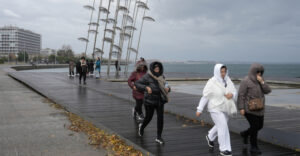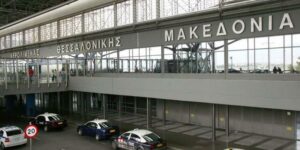The first meeting of the representatives of the 30 US universities with Greek universities, in the framework of the Pharos Summit 2022, organized by the Ministry of Education and Religion and the Institute of International Education, took place with the National Technical University of Athens (NTUA).
NTUA’s Rector’s Office, School deans, and professors met with the representatives of 16 US universities, including Columbia University, California Polytechnic State University, Carnegie Mellon University, Indiana University, Johns Hopkins University, Joliet Junior College, Ohio Northern University, Cincinnati, the University of Illinois at Urbana-Champaign, University of Kentucky, University of South Alabama, University of Southern California, Viterbi School of Engineering, Widener University, William & Mary, Yale University, York College of Pennsylvania.

Rector Andreas Boutouvis presented NTUA’s activities related to academic collaborations with the USA and the prospects for expanding and strengthening them and pointed out the main challenges.

On behalf of the American delegation, Professor Dena Haritos Tsamitis from Carnegie Mellon University referred to the objectives of the visit of the American Universities delegation, and the representatives of all universities participating in the meeting briefly presented their policies and proposals for possible bilateral cooperation. The two-hour meeting concluded with a short discussion on specific practical issues of bilateral cooperation.
From the speeches of the representatives of the American universities and the discussion that followed, collaborations emerged in the following areas, some of which collaborations are already underway:
• Conference-type workshops, summer schools
• Short-term student mobility – internship/dissertation
• Mixed teams of mature undergraduates on joint projects under co-supervision
• Competitions/hackathons
• Mobility of academic staff – participation in hybrid lectures especially in graduate courses
• Co-supervision of diploma theses
• Double/joint doctorates • Research collaboration, funding through Greece/Europe USA programs – the National Science Foundation and the US National Institutes of Health could participate.
Earlier, at the Pharos Summit 2022 morning gala event at the Stavros Niarchos Cultural Center, NTUA’s collaboration with Columbia University for a double degree was presented. The presentation was made by Professor Alexander Cooley from the Columbia side and by the Dean of the School of Civil Engineering Professor Nikos Lagaros from the NTUA.
A. Boudouvis: Our students benefit
In his introductory speech, the rector A. Boudouvis said, among other things, the following:
“An opportunity is presented to create a framework for systematic interaction between Greek Universities and US universities. Especially those of us who are alumni of US universities, we are strong advocates and pioneers in building and strengthening ties between the two sides, as we know firsthand the values, standards, strength, influence, and leadership of the world-class US universities that it can be beneficial for our academic system, which – I underlined – is aligned with the European one.
Students are the ones who benefit the most from bilateral cooperation. I was talking about the signing of the NTUA double degree agreement with Columbia University: this agreement highlights the international reputation of our university and strengthens the status of our students’ degrees. In addition, this collaboration offers our best students the opportunity to familiarise themselves with the study conditions and academic environment characterised by multiculturalism, extroversion, diversity, multidimensional campus life, creativity, and pioneering in education and research, to work together strengths through teamwork, but at the same time, with a lot of room for individual achievements and the search for opportunities in multiple directions…The wave of flight of young scientists
…The main impetus for these interactive efforts, Mr. Boutouvis added, is the Greek academic diaspora in the United States. “I am sure they will be of great help in what we are launching and many of them are on the mission currently visiting Greece. On the other hand, keep in mind that one of the most serious problems facing Greece is the great flight of young scientists over the last 15 years. In the 60s to the beginning leading up to the 90s it was not so intense and the preferred destination was the USA. This is no longer the case. The exodus was great and Europe is by far the most attractive destination. I firmly believe that building a solid framework of cooperation with American universities, e.g. in research, will help keep young scientists here while offering them the opportunity to interact without leaving the country permanently. We have seen this happen in other countries with a significant diaspora in the United States…”
Ask me anything
Explore related questions





